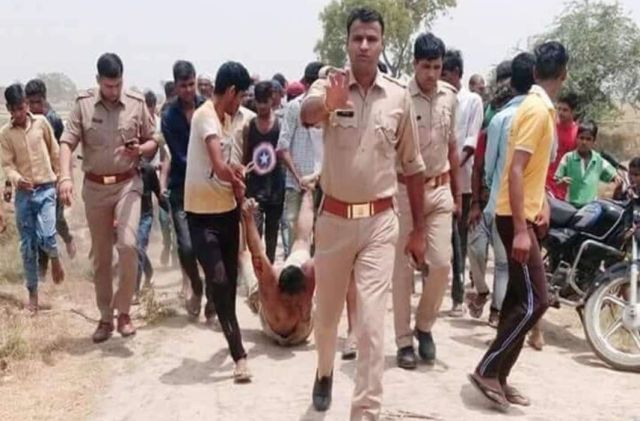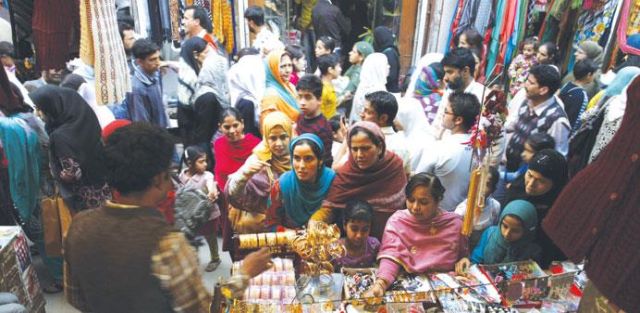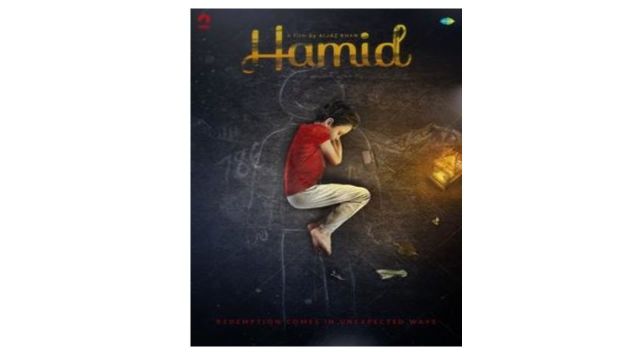
by admin | May 25, 2021 | Opinions
 By Saeed Naqvi,
By Saeed Naqvi,
Two policemen leading the mob which ultimately lynched a Muslim in Hapur is, of course, part of familiar communalism which has to be revved upon to a higher pitch in order to prepare the ground for the General Elections in 2019. The animal to be protected is not the cow, but power.
For this ultimate goal, incidents like the one in Hapur and the more ghoulish ones before it, hundreds of them, are all essential to maintain conditions of edgy, combustible intolerance. Nothing else seems to be working. Why not continue playing the game one knows best?
An accumulation of such incidents, even their simultaneous eruption on a large scale, amplified by the media, can whip up majoritarianism wherever Muslims are visible and where the majoritarian current has not been weakened by caste polarization. This applies much more to what the British called the “cow belt” but which is more accurately described as the “Hindi belt” – UP, Bihar, Rajasthan, Madhya Pradesh plus Maharashtra and Gujarat.
The 2019 Kurukshetra has to be organized, mobilized, galvanized, whipped up (with the media in tow) only by anchoring communalism to a higher purpose. In other words, “nationalism” has to be invoked. Cow and Love Jihad cannot be given the elevation of nationalism. Mere communalism results in finger pointing at the state apparatus; nationalism justifies the deployment of this apparatus. Whether this deployment is for a national or the nationalist’s cause is open to question.
Cow and Love Jihad cannot be posited as harbingers of national danger. They are not issues endangering national security.
This is where the new turn in Kashmir comes in. Polarization on a massive scale is the electoral requirement now that 2019 looms. This polarization would have been implausible with the BJP in chummy proximity to the PDP’s Mehbooba Mufti in Kashmir.
By sliding away from Mehbooba in the state Assembly, the BJP has turned its back on the Muslims of the Valley, of course. It has also, in effect, freed millions of Hindutva cadres across Bharat Varsha to blow conch shells heralding the great 2019 epic.
The tearing hurry in which the Partition of India was affected may have been one reason why our founding fathers were unable to visualize what we face today. Progressive intellectuals may dismiss “The Guilty Men of India’s Partition” by Ram Manohar Lohia and “The Tragic Story of India’s Partition” by the late H.V. Sheshadri, General Secretary of the RSS until 2000. But would they dismiss with equal contempt Maulana Abul Kalam Azad’s “India Wins Freedom”, particularly the crucial 30 pages which were kept in the custody of the National Archives until 1988? The Maulana is worthy of being read again today.
By the act of Partition and the sleight of hand in Kashmir, India trapped itself into a triangle. This truth has to be continuously repeated because the Indian mind is in the drill to chant a mantra faster than it is to understand a shloka. The three sides of this triangle are actually three axes which are New Delhi-Kashmir; India-Pakistan; Hindu-Muslim. These three axes are, in effect, one comprehensive complex of issues. As in a geometrical theorem, the triangle has to be addressed as a whole. It cannot be sorted out axis by axis, one side after another.
If Ram Madhav, the BJP’s point man for Kashmir, marches off to Srinagar with a carte blanche from the High Command to solve the problem at any cost, there is nothing he can achieve without bringing Pakistan into the bargain. Activation of these two axes will have an impact on the third, Hindu-Muslim axis. This would entail the communal temperature coming down considerably. Will that serve the electoral aims of the party in power in New Delhi?
Of course, it will not, and here, to complicate matters, another triangle comes into play. Since the 80s and 90s the primary triangle has become entangled with a very durable caste triangle. The caste pyramid or triangle instead of being left to social forces, time and attrition to equalize at its own pace was aggravated by the sudden eruption of caste politics in North India in the wake of the Mandal Commission. Communal politics is the upper caste strategy to manage the caste upheaval from below. The upper caste or the ruling class formations project Muslims and other minorities as the “other” to keep the Hindu flock together, the Pyramid in some state of repair. The lower castes, likewise, would like to co opt the Muslim as an enabler in their bid for power and equality.
The Hindu ruling class in its Hindutva Avatar is averse to vertical or horizontal fragmentation. A federal India, corresponding to its regional diversity is anathema to the votaries of Hindu Rashtra. The preservation of this unitary Bharat is an article of faith with those controlling the Delhi Durbar. To mobilize masses towards this end requires a constant harping on an external enemy in cahoots with the enemy within.
The enemy within can be manipulated along the two internal axes of the triangle: New Delhi-Kashmir and Hindu-Muslim. The India-Pakistan axis, essential to complete the triangle cannot be played according to New Delhi’s will alone. External stakeholders include China, Russia, Central Asia and the US. As Charlie Chaplin, having fallen into a drum, his feet and neck protruding in an awkward loop, takes his hat off in an attempted bow, and announces: “Ladies and gentlemen, we are stuck!”
(A senior commentator on political and diplomatic affairs, Saeed Naqvi can be reached on saeednaqvi@hotmail.com. The views expressed are personal.)
—IANS

by admin | May 25, 2021 | News, Politics

BJP General Secretary Ram Madhav
New Delhi : BJP General Secretary Ram Madhav on Wednesday said the decision of pulling out of ruling coalition with the PDP in Jammu and Kashmir was a “difficult thing to digest” for him but it was taken in the “larger interest” of people of the state and India.
“I was one of the persons involved in bringing this alliance together. I worked for 40 days with (PDP leader) Haseeb Drabu on building this agenda agreement. It was very difficult thing for me to digest when I was communicated that I should take this step now,” Madhav told CNN-News18 channel.
The BJP on Tuesday suddenly exited the coalition it had formed with the People’s Democratic Party (PDP) in 2015, prompting Chief Minister Mehbooba Mufti to resign and Governor’s rule imposed with Governor N.N. Vohra putting the state assembly in animated suspension.
Madhav also revealed that there was “enough progress” in bringing the Hurriyat leadership to the negotiating table.
“I won’t say beyond that but the developments in the last two weeks have pushed us back to square one,” he said.
About the strains in the BJP-PDP alliance, Madhav said that political activists in the Valley were not playing any role (towards normalisation) even after suspension of operations by the security forces.
“And then the insistence (by PDP) that you talk to Pakistan, extend suspension of operations even after broad daylight killing of journalist Shujaat Bukhari, we felt there was a growing mismatch and for us the larger interest of the state and national integrity (are more important),” he said.
Asked why Mehbooba Mufti — who was taken by surprise — was not intimated in advance of the BJP’s decision to pull out as per the coalition dharma, he said he tried to contact her but “could not reach her”.
“I did try to reach out to her before we actually sent out the fax message to the Governor. We could not talk before we sent out the fax. But it is not breaking any coalition dharma. We came together, we decided to part ways and sent this message to the Governor,” said Madhav, who is party in-charge of Jammu and Kashmir.
Responding to Mehbooba Mufti’s statement that a “muscular policy” cannot work in Jammu and Kashmir, he said that her political approach was different from that of the BJP’s.
“We disagree with her on the usage of this term (muscular policy). Innocent policemen being killed, a journalist like Shujaat Bukhari being killed and not controlling all this — if this is the soft approach, I am sorry we don’t want that kind of a soft approach,” he said.
Asked if the Ramadan ceasefire did not go down well with the people of Jammu, the core voter group of the BJP, Madhav said: “It’s not about the people of Jammu. When innocents get killed, when policemen get killed, when regular attacks happen on army and CRPF convoys and security forces are seen as to be not doing anything in retaliation, naturally a bad impression is created in the rest of the country.”
He said that the “risk” of suspending the operations was taken as a “goodwill gesture” but there was no reciprocation from the other side.
—IANS

by admin | May 25, 2021 | News, Politics
 New Delhi : More than three years after they formed an uneasy coalition, the BJP on Tuesday pulled out of the PDP-led Jammu and Kashmir government, citing growing terror activities and radicalization in the valley making its continuance “untenable”.
New Delhi : More than three years after they formed an uneasy coalition, the BJP on Tuesday pulled out of the PDP-led Jammu and Kashmir government, citing growing terror activities and radicalization in the valley making its continuance “untenable”.
Announcing the party’s sudden decision at a hurriedly-called press conference, Bharatiya Janata Party (BJP) General Secretary Ram Madhav said that Deputy Chief Minister Kavinder Gupta and nine other ministers from the party have tendered their resignation to Governor N.N. Vohra and Chief Minister Mehbooba Mufti. The state leaders were called to the national capital for urgent consultations.
The move came less than a year ahead of the 2019 general elections and a couple of months after the BJP had replaced its Deputy Chief Minister in the wake of outrage over Kathua rape incident.
It also came two days after the Centre decided not to continue with the ceasefire.
“After reviewing the work of the government in the last three years and after consultations with the Home Ministry and the agencies and after consultations with Prime Minister Narendra Modi and BJP President Amit Shah, we have come to the conclusion that it is difficult for the coalition to move forward in Jammu and Kashmir.
“It has become untenable for the BJP to continue the alliance in Jammu and Kashmir in the situation that has developed today. Terrorism and violence have increased in the valley and radicalization is fast spreading. Fundamental rights of citizens and right to free speech of people have come under threat in the valley as symbolized by the murder of senior journalist Shujaat Bukhari in broad daylight in Srinagar,” Madhav said.
The People’s Democratic Party (PDP) and the BJP formed a coalition more than two months after the December 2014 elections returned a hung verdict, in which the PDP got 28 seats and the BJP 25, while the National Conference with 15 and Congress managed to win 12 in a House of 89. The government came to power on March 1, 2015.
The BJP leader said that the coalition was formed with an intention of restoring peace in Kashmir and encouraging fast development in all the three regions of the state including Jammu and Ladakh.
“The BJP did its best to give a good government. The Centre had also given a package of Rs 80,000 crore. The Home Minister (Rajnath Singh) had made several visit to the state and the central government had also appointed a interlocutor in a sincere attempt to resolve issues in Kashmir. On the border also, we took steps to contain violence by erecting 4,000 bunkers. Whatever the state government wanted we were ready to give,” he said.
But, Madhav said, they were sad that the government failed to discharge its responsibilities and the feeling of discrimination towards Jammu and Ladakh regions continued.
“After three years, today we have come to the conclusion that in the interest of the entire nation of which Jammu and Kashmir is inalienable part and in the interest of integrity and sovereignty of the country, keeping in mind the larger interest of the security, in order to bring situation under control, we have decided that is it time the reins of power be handed to the Governor for a spell of Governor’s rule. After the situation is restored, we will consider what to do in the future and take the political process forward,” he said.
He said the ceasefire was announced by the Centre with the intention of bringing peace to the state and to give relief to the people of Kashmir during the holy month of Ramadan. “It was our hope that we will get a good response from terrorists and separatist forces like Hurriyat. We were under no compulsion. It was a goodwill gesture and we did it from a position of strength,” he said.
In any case after the killing of senior journalist Shujaat Bukhari, there was no question of extension of ceasefire. If terrorists can enter into the city and kill Bukhari in broad daylight in a high security area, there was no question of continuance of ceasefire, the BJP leader said.
Madhav also said that over 600 terrorists have been neutralized in the last three years to stop radicalization. “Our campaign against terrorist will continue and there is no doubt about it. That is why we are going out.”
Replying to questions, he said apart from the reasons given, there were no other reasons for the decision to pull out of the government. “We are not concerned about losing ground in the state.”
He said the coalition was formed to respect the mandate of the elections and two parties came together and tried to give governance.
He said that state has faced such situation in the past when there was rising violence and periods of it being controlled. “All we are saying now is we have come to the conclusion that in present scenario and in the present juncture, we find our continuance untenable.”
—IANS

by admin | May 25, 2021 | Economy, Markets, News
 Srinagar : Shopping fever ahead of Eid-ul-Fitr turned to panic here and in other towns of Jammu and Kashmir on Thursday as people began mobbing shops after news reports said the Eid moon might be sighted in the evening.
Srinagar : Shopping fever ahead of Eid-ul-Fitr turned to panic here and in other towns of Jammu and Kashmir on Thursday as people began mobbing shops after news reports said the Eid moon might be sighted in the evening.
People had been shopping expecting the festival to fall on Saturday, but after news reports that there was a high probability of the Eid moon being sighted on Thursday evening, the long queues of disciplined shoppers suddenly morphed into mobs jostling to buy mutton, bakery items, poultry and other edibles.
Traffic Department officials, who had been maintaining traffic meticulously in Srinagar, seemed to overlook wrong parking by motorists and the extension of shopping counters by bakers onto pedestrian footpaths.
Children were seen being escorted by parents through virtually impassable roads thronged shops to buy firecrackers.
Shoppers accused the authorities of allowing black marketeers to demand prices on a whim rather than adhering to the rate lists fixed by the administration.
Most offices and educational institutions were deserted early as everybody preferred to reach home soon.
After observing fast during the holy month of Ramadan, Eid is a special day of thanksgiving for Muslims worldwide with families looking forward to sumptuous lunches.
In Kashmir, where violence has held normal life hostage for the last 30 years, occasions like this become special as people go shopping, meet friends and relatives, and engage in other social activities.
Since the central government has declared a Ramadan ceasefire, people have been moving freely in areas otherwise vulnerable to security force operations against the militants.
—IANS

by admin | May 25, 2021 | News
 Mumbai : The makers of “Hamid”, a film which tells a story about a Kashmiri boy in search for his father, are planning to show the movie to the people in the Valley before its theatrical release.
Mumbai : The makers of “Hamid”, a film which tells a story about a Kashmiri boy in search for his father, are planning to show the movie to the people in the Valley before its theatrical release.
The Yoodlee Films’ project is directed by Aijaz Khan.
“We feel this film has the power to touch lives in one way or the other. We thought what better than show it to people in the valley first. The film is about healing and about hope,” Siddharth Anand Kumar, Head, Yoodlee Films said in a statement to IANS.
“One of our lead actors is from Kashmir and we felt the journey of the film’s release should start from where the story is situated,” Anand added.
“Hamid” has been shot entirely in Kashmir.
Aijaz said the “idea for ‘Hamid’, came from a Kashmir acquaintance of mine who narrated a one liner — a seven-year-old Kashmiri boy whose father has disappeared calls up 786 and speaks to Allah”.
“The idea engaged me so much that I developed it into a screenplay. What I found compelling, as the story developed was Hamid’s world, and how it turned upside down after his father’s sudden disappearance, and his mother’s apathy towards him,” he added.
“The story of three fractured souls, against the strife of present day Kashmir, consumed me. It’s been a deeply emotional journey for me and everyone involved in the project.”
The film, scheduled to release later this year, features Rasika Dugal, Vikas Kumar and child artiste Talha Arshad Reshi.
—IANS





